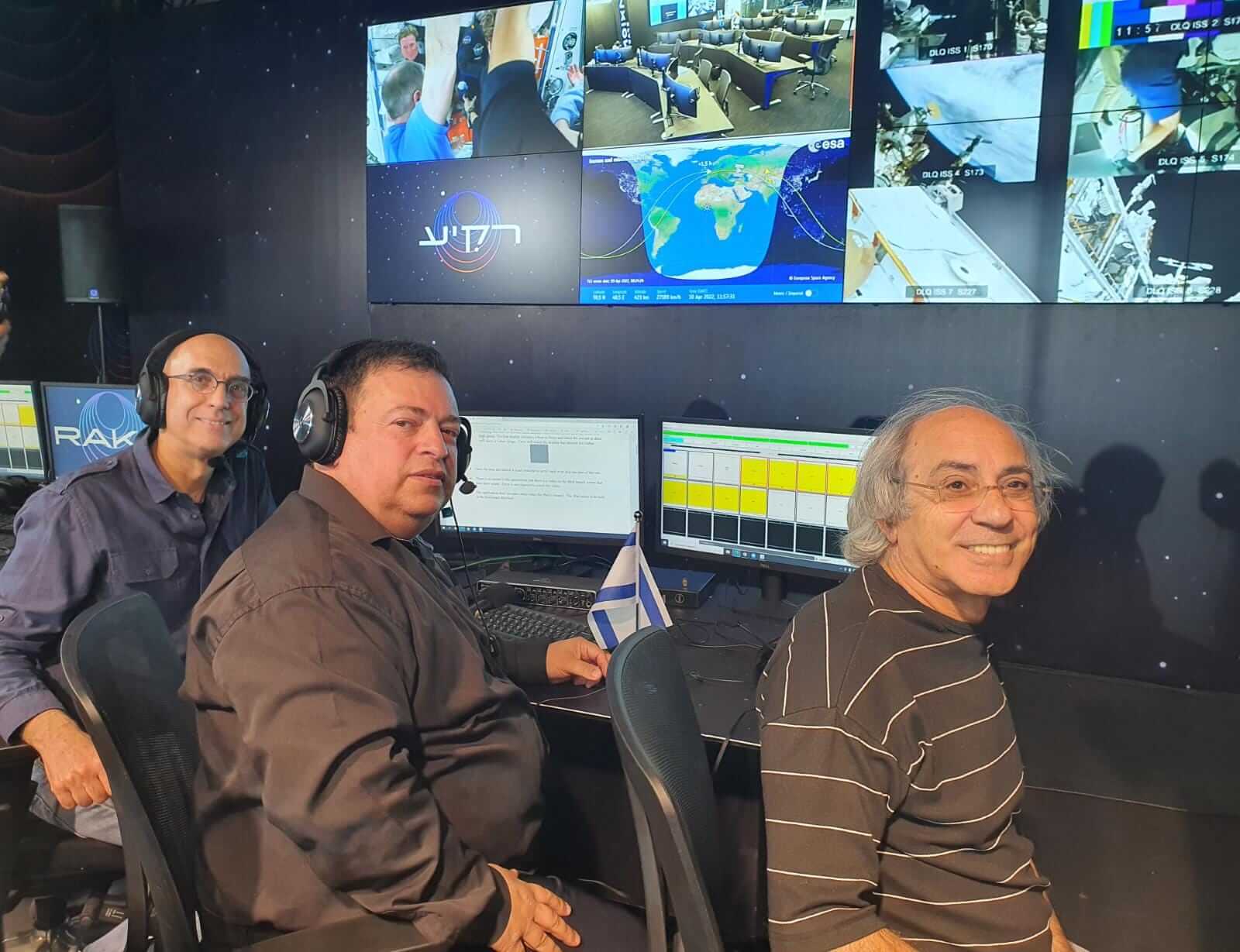The experiment tested the changes that occur in the ability to see during space flight. The researchers are Dr. Eran Shanker, Prof. Uri Folat and Prof. Yossi Mendel.

On his first day in space, Eitan Stiva completed the first Israeli biomedical research on the International Space Station. A leading study by three Israeli researchers Dr. Eran Shankar, Prof. Uri Polat and Prof. Yossi Mendel. In the study, Eitan Stiva tested a computerized application that allows the detection of slight changes in vision during space flight.
Shortly after the launch of the Axiom-1 mission team, which joined the seven astronauts on the International Space Station, Eitan Stiva began the first Israeli medical research on the International Space Station. At that time, the three researchers were sitting in the mission room in the sky complex to help. Prof. Uri Polat, Head of the School of Optometry and Vision Sciences and Prof. Yossi Mandel, Head of Ophthalmic Science and Engineering Laboratory at Bar-Ilan University and Dr. Eran Shankar, Medical Director of the Israel Institute of Space and Aviation Medicine. This reflects a long year of development and adaptation of the technology so that it will be possible to monitor the vision status of astronauts in space missions.
Prolonged exposure to microgravity conditions during space missions can impair vision and cause neuro-ocular syndrome. Symptoms reported by astronauts who have been in space include decreased vision, changes in the optic nerve, retina, and change in refractive error.
The technology used by the researchers was chosen to take part in the "sky" space mission and aims to examine the effect of microgravity conditions on visual function.
Prof. Uri Folat from Bar-Ilan University: "I was very excited to sit in the control center of the mission. Connected to the space station and waiting to help if necessary." Prof. Yossi Mendel added that the feeling of being the first Israeli researchers to conduct research in the field of vision on the space station is a breakthrough for many other studies in the future."
Dr. Eran Shankar, who passed this is not the first space mission. As a space doctor bringing Israeli studies into space for 25 years, a senior researcher in medical research in space explains: "The last time physiological indices were tested for an Israeli in space was on the Columbia mission for the late Ilan Ramon, the first Israeli astronaut. It took Israel many more years until Israeli research was launched to the space station with Israeli technology that was launched until the last NASA space shuttle mission. Now with the technology of SpaceX and the space vehicle of Axiom, many studies have been launched to the space station which will be carried out by Eitan Stiva.
"I have no doubt that the Israeli researches in the mission will greatly contribute to the understanding of the functions of vision in zero gravity conditions and will greatly assist in the planning of long-term space missions to the moon," concludes Dr. Shanker, the Israeli space physician.
More of the topic in Hayadan:
- Live broadcast - the president of the country talks with Eitan Stiva at the space station
- Successful launch of the Dragon spacecraft team on mission AX-1 including the Israeli Eitan Stiva (updates, photo gallery and broadcast recordings)
- Space mission experiments part 1: conducting remote tests and the effect of staying in space on the immune system
- Sky Task Experiments Part 2: Studies in the Brain
- Sky Mission Experiments Part 3: The rest of the medical experiments, space steak and the student experiments

2 תגובות
An ongoing experiment. Check before flight several times in space and after the flight
Is this an ongoing or one-time experiment? If you test vision under zero gravity then it is better at the end of the dwell time in space when there is already an effect of zero gravity.